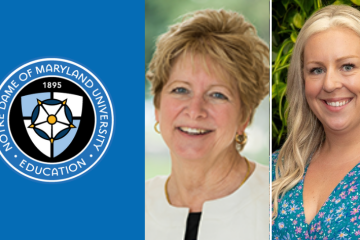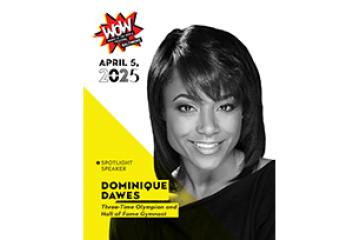Student Delegation Travels to Washington D.C. for Model OAS Conference
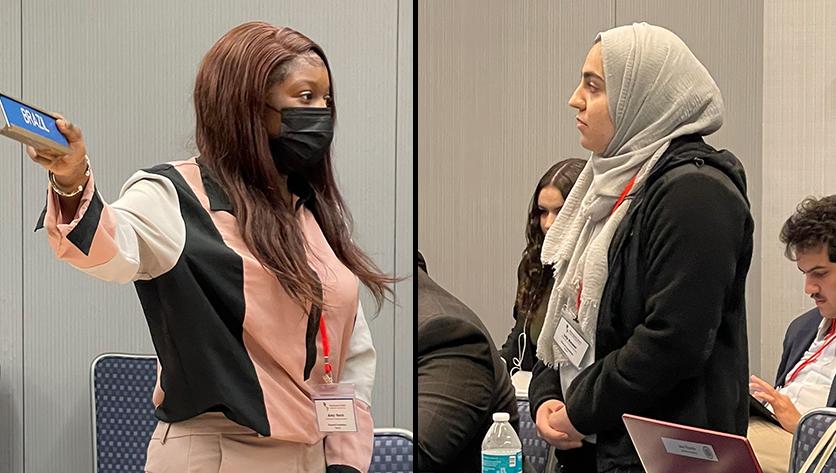
By: Erik Pedersen, Senior Communications Manager
BALTIMORE – Five Notre Dame of Maryland University students recently participated in the annual Washington Model General Assembly of the Organization of American States (WMOAS), a unique opportunity which connected them with fellow students from all regions of the Western hemisphere.
The WMOAS, held every year in Washington D.C., is a collaborative effort between the OAS and the Institute for Diplomatic Dialogue in the Americas (IDDA). NDMU’s delegation represented Brazil at the conference, which serves as a simulation of the OAS General Assembly. Students engage in diplomatic efforts throughout the four-day event, debating issues of peace, security, development, and human rights in the region.
A total of 26 colleges and universities from across the hemisphere took part in the initiative. All five Proposed Draft Resolutions (PDRs) submitted by NDMU students Lily Emami ’22, Jolisse Gray ’22, Alycia Hancock ’23, Nicol Rodriguez ’22 and Amy Seck ’24 were ultimately approved by their respective committees.
“I’m so proud of them,” said Dr. Anne Henderson, chair of the history and political science departments at NDMU who serves as the team’s faculty advisor. “A lot of the teams had 10 members, which allowed them to work in shifts. Our five members were debating for up to eight hours in a row without any breaks. They had to work really hard, but they maintained their cool throughout and were rewarded for their efforts.”
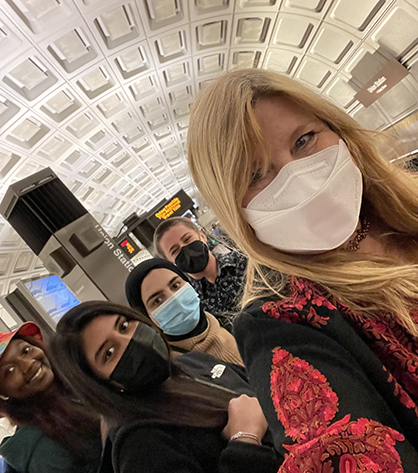
Seck, who was the team’s head delegate, proposed a resolution focused on an integration program for refugees which would improve access to jobs and education. The PDR passed in the general committee after overcoming questions concerning finances and the feasibility of implementation around the hemisphere.
Seck’s resolution highlighted the plight of Venezuelan refugees due to their relevance to Brazil. For the team, entering the assembly with a strong knowledge of both the country they were representing and other surrounding nations was essential.
“We tried to make ourselves as Brazilian as possible,” Seck said. “We spent months researching issues, trying to determine how Brazil’s leaders would respond to each situation. There was also a lot of time spent researching other countries, learning what Brazil’s relationship is like with them. Dr. Henderson made sure we knew as much about the other countries as we knew about our own.”
NDMU’s delegation also had an opportunity to speak via Zoom with Brazilian ambassadors to the OAS during their stay in Washington.
“We met with three people who worked at the OAS,” Emami said. “They gave their opinions on our PDRs, and discussed whether they were resolutions that Brazil would propose. It was a great opportunity to get some perspective on what the official Brazilian government’s stance is on certain issues.”
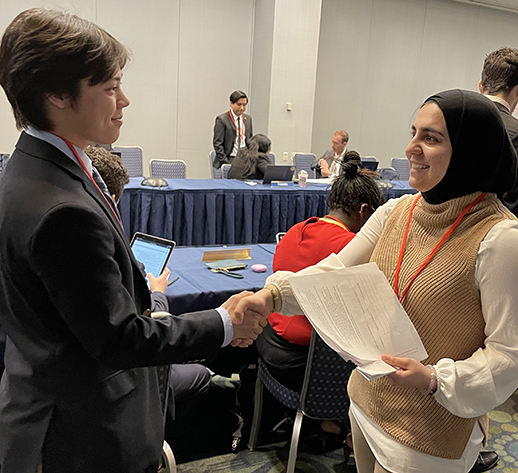
Much of the work for Emami’s proposal, centered on creating an annual collaborative summit to promote the use of renewable energies, was achieved during the assembly’s first day when students have their initial opportunity to meet other delegations. This networking period allows attendees to introduce their proposals and gain a minimum of five additional supporters, known as co-signatories, to allow the PDR to advance to committees for debate.
Emami’s proposal ultimately passed with consensus after no other countries spoke out in dissent. Gray’s PDR, which focused on limiting the damage of future pandemics, inspired more debate and included the passage of an amendment before gaining the required number of votes to support.
“The idea was that countries that already had pre-existing pharmaceutical and vaccine production facilities, such as Brazil, would get foreign direct investment in order to bolster up their capabilities,” Gray explained. “While countries that didn’t have necessarily robust facilities would get licenses to manufacture the vaccine themselves. The goal was to achieve vaccine security and equity throughout the hemisphere so that countries were not reliant on American and Western European corporations.”
Rodriguez, who was participating in Model OAS for the third time at NDMU, created a proposal designed to lift indigenous communities out of poverty through the creation of local councils. Those councils would allow them to negotiate with private sector businesses hoping to build on their land. After initial debate on the topic, her proposal passed with just one dissenting vote.
“The debate is often the best part,” she said. “As it is a chance to demonstrate how hard you worked and how well you know your topic. When you can respond eloquently to tricky questions and hold the room’s attention with a compelling and well-practiced speech, you feel proud. As someone who participated in the model both my freshman and junior year and now again senior year, it was heart-warming to see how much my public speaking has evolved and improved over my college career.”
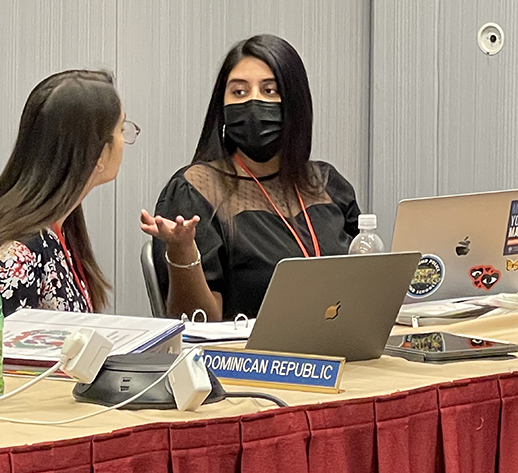
Hancock, the lone NDMU representative making her Model OAS debut, advocated for the creation of an Inter-American Vaccine Education Network designed to help combat vaccine hesitancy and misinformation. Her proposal received widespread support and passed without objection.
“Model OAS has always been a class that Morrissy Honors Program students love, and now I understand why,” Hancock said. “Dr. Henderson really loves Model OAS – she is the reason that it exists at NDMU. You cannot help but match her expectations for you to rally for your resolution and create something that you’re proud of.”
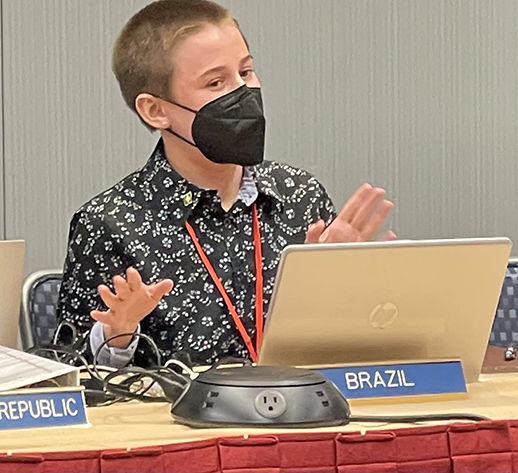
The unique opportunities provided by Model OAS, including the potential to meet lifelong connections from across the hemisphere and learn new perspectives on key issues, often inspires NDMU students to make return trips to the annual conference.
“It’s an amazing opportunity that we get to do this,” Seck said. “Many people from other schools might study the same things that we do, but being able to apply what we’ve learned in that kind of setting is just really cool. I plan on doing it every year until someone tells me I can’t do it anymore.”
Established in 1895, Notre Dame of Maryland University (NDMU) is a private, Catholic institution in Baltimore, Maryland, with the mission to educate leaders to transform the world. Notre Dame has been named one of the best "Regional Universities North" by U.S. News & World Report.


